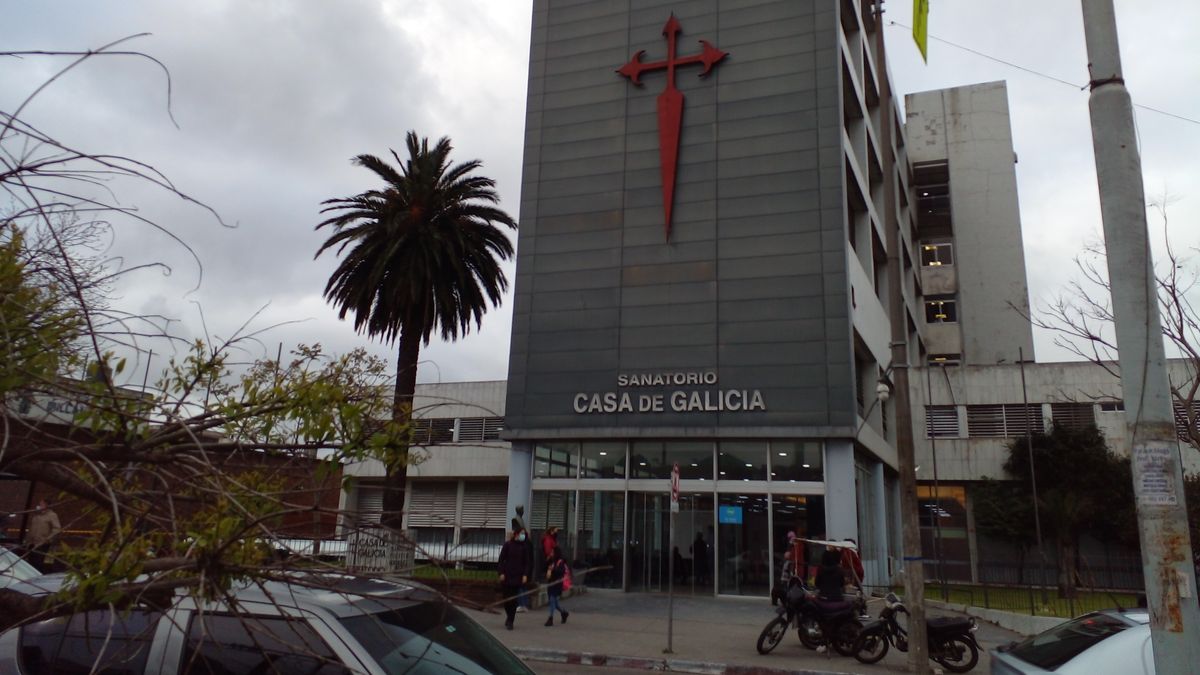The former workers of House of Galicia they hope that the president Luis Lacalle Pou do not veto the law approved in the Parliament, despite the fact that it is an alternative that the Executive Branch is analyzing at this time due to the increase in spending that it would imply for the State of Uruguay, some 30 million dollars destined for labor credits pending payment after the closure of the health center. If it actually does, they study the possibility of going to judgment.
Despite having had the support of ruling party legislators in both chambers, Lacalle Pou He has on his desk the possibility of vetoing the law that establishes coverage by the State of part of the labor credits of more than 1,000 former workers from House of Galicia. However, the group of former workers prefer not to think about this alternative.
“Today we are making statements that seem to talk about a veto, but we do not think that can happen. We trust in democracy, in the president, that the law that was approved is to enforce two existing laws in the country. “We hope it continues,” he explained. Flor Constanzo, president of the Association of Officials of the House of Galicia (Afuncag), to Telemundo.
Regarding the increase in the budget in the project that was finally voted on—30 million dollars against the 8 million dollars proposed in the Executive’s proposal—Constanzo considered that the original text was “short”.
“The 8 million dollar project gives each worker approximately 170,000 pesos. And what corresponds by law is up to 105,000 Indexed Units (UI), a law in force since 2018. The Executive’s proposal was very short. A nurse earns 23,000 pesos, a service assistant earns 17,000 pesos when she first starts. All the Casa de Galicia workers who went to work (elsewhere) entered as if they had entered yesterday, they have no seniority, no rank, nothing. If I worked 20, 30, 35 years at Casa de Galicia, I cannot accept 170,000 pesos, because I am earning 23,000 pesos per month, because for 30 years of work they owe me 1,000,000 pesos. No one would accept that,” she explained.
In the event that, indeed, Lacalle Pou decide to veto the law, “the lawyers recommend going to judgment”, said the president of Afuncag. “Something that the State would get more”he added.
In any case, Costanzo insisted that “we are not thinking about the veto. The workers are thinking about close this very sad chapter of our lives, in charging what the law states that we should be paid and in ensuring that colleagues who do not have a job have one,” he said, adding: “The law that was voted was voted because it was not complying with what was agreed upon, which was that The companies that took over the partners had to consult the stock market, but some do not do so. That is why another law was made to comply with the existing laws.”
Conflicting opinions within the coalition
Meanwhile, the debate continues among legislators, which was also reflected in the positive and negative votes for the law, as recorded by the newspaper in various consultations with senators from the ruling party.
About, Sergio Botana —the only senator of the National Party who voted for the project—said that the president “has every right to veto,” but understands that “the best solution” is the one that was approved, because “avoids the cost of going to court” that the State could face. “It’s not worth it with those numbers,” he said, referring to a possible cost that could double that provided for in the voted law.
At the same time, Guillermo Domenech -President of Town meeting, who supported the project presented by the Broad Front— considered that, in the event that the presidential veto is carried out, “We would have to study if there are votes to lift it”; that is, three fifths of the General Assembly. Likewise, he stated that if the project is vetoed, “obviously, it will create a difficulty” for the former Casa de Galicia officials “to collect their salaries,” and he does not know if “they will have the possibility of collecting them through judicial means.”
In the opposite direction, the nationalist said Graciela Bianchi, for whom the project is “nonsense”. According to the senator, Casa de Galicia is “a private company that went bankrupt and the State has no responsibility for the workers.” “I agree with the veto. I would not like to have put the government – I had nothing to do with it nor the PN –, the president, in that situation, but due to republican responsibility the president has to veto, because We taxpayers cannot take responsibility. of situations of private companies, which were also poorly managed,” he added.
Source: Ambito




